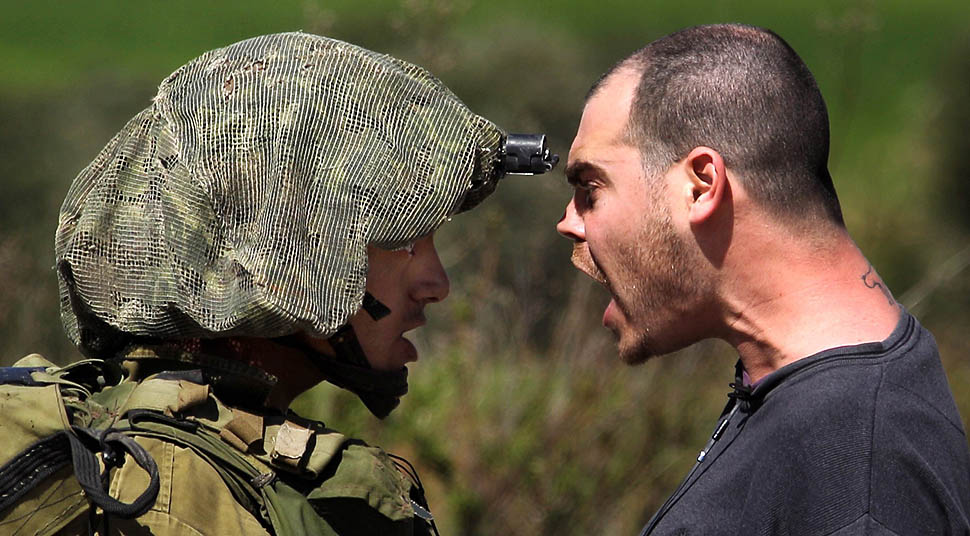Tag: Roadblock
-
Video: Israeli military shooting directly at press in Kufr Qaddoum
by Axel 4 April 2012 | International Solidarity Movement, West Bank On Friday the 30th of March the weekly demonstration was held in the village Kufr Qaddoum outside of Nablus. This day was however the same day as the Global March to Jerusalem, meaning less media attention than normal, and also less internationals present as…
-
Attacked and arrested: Kufr Qaddoum anticipates an even larger demonstration following Israeli violence last week
by Jonas 21 March 2012 | International Solidarity Movement, West Bank Last Friday two people were injured and two arrested when the repression of the Israeli army came down on the regular demonstration at Kufr Qaddoum. Attack dogs were used to frighten and incapacitate protesters, besides the usual tear gas, sound bombs and skunk water. But the village is…
-
After much injustice, Beit Dajan debuts its peaceful resistance
by Jonas Weber 9 March 2012 | International Solidarity Movement, West Bank Several hundred villagers gathered today in Beit Dajan to the first ever demonstration against the roadblock that has been obstructing access to the village since the beginning of the second Intifada. The peaceful demonstration was met with a heavy tear gas from the Israeli military. Since 2000, the…


